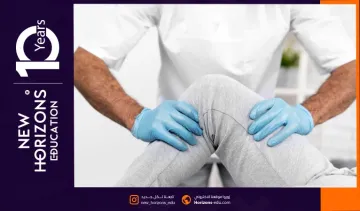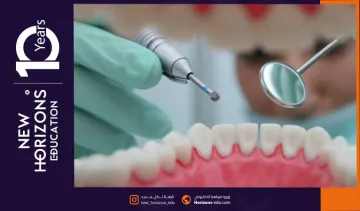
How to study human medicine in Turkey? Is Turkey a good option for studying human medicine? You may ask these questions if you are interested in studying medicine in Turkey.
There's no doubt that human medicine is now considered a graduate discipline, given the important tasks physicians undertake. The importance of those working in various medical sectors has become clear during the recent global health crisis, with doctors serving as frontline soldiers in the fight against the pandemic.
In addition to the prestigious social status that a study of human medicine confers upon its holder, after honing his skills, it provides him with a good work environment, a relatively excellent income, and a more comfortable life.
Clarification: (All information contained in the article is updated to the year 2025, and from official and reliable sources under the supervision of educational consultants officially accredited by Turkish private universities, as well as from official university websites, and according to the university fees guide of the Turkish Ministry of Higher Education (YOK))
Study Human medicine in Turkey has many advantages, including:
How to study human medicine in Turkey? In recent years, Turkey has worked hard to develop its experience in medical education and training. It has focused its efforts on building a strong infrastructure of medical colleges and specialized hospitals in various Turkish cities.
In addition, it has provided them with the latest medical equipment and devices, along with training and qualification programs in various subspecialties, to qualify students, doctors, technicians, and other healthcare workers.
This is in parallel with ambitious, pioneering plans to support and enhance scientific and medical research activities, and to keep pace with the latest global developments in pioneering medical studies and applications.
A doctor studying at a medical college in Turkey can delve into many important practical fields.
After a medical student completes his studies at a Turkish medical college in his specialty, and based on the experience he gains during his practical training period, the training he receives in university hospitals, and the years of experience he acquires, he will have a variety of job opportunities in many sectors, the most important of which are the following:
Read more: Medical laboratory institute in Turkey
Before you study human medicine in Turkey, you need to know some important information.
Studying medicine in Turkey involves several stages. It typically begins with a preparatory year to master a foreign language, such as studying human medicine in Turkish, or studying medicine in English.
Exemptions may apply to holders of official certificates with high foreign language proficiency scores, such as the TOMER certificate for the Turkish language and the TOEFL certificate for the English language.
Medical students then typically begin studying the general sciences in their first year, followed by the foundations and introductions to each specialty within human medicine, until the student graduates as a specialist in a prestigious medical specialty. Among the most popular human medicine specialties in Turkey are:
There are also many more specialized fields of human medicine, such as embryology, epidemiology, population medicine, and dozens of other subspecialties.
Read more: Top 3 medical specializations to study in Turkey
The subjects required when you study human medicine in Turkey vary from university to university, but generally revolve around a number of theoretical and practical courses.
The duration of study for a human medicine degree in Turkey is typically six years. This may be extended by adding a preparatory year to master the language, as mentioned above, or for further specialization and training in public and university hospitals.
The following is a list of the most important subjects, courses, and applications that a student who wants to study human medicine in Turkey undergoes during their undergraduate studies.
The aforementioned subjects are typically taught during the first three years of human medicine studies at Turkish universities.
Then, the focus is on practical aspects, training, and qualification in the subsequent years, which are called the clinical phase in medicine, meaning that the practical aspect predominates over the theoretical aspect.
The sixth year is a full year spent by the new doctor residing in the hospital, undergoing clinical training on various medical conditions.
This aims to train doctors on work independence and decision-making skills. This practical medical training is called STAG (Internship in Medicine) in Turkey.
Admission requirements for studying human medicine in Turkey vary from one university to another, depending on its classification and the degree awarded. However, in general, studying human medicine at Turkish public universities requires passing an additional aptitude test, such as the YOS, SAT, or GMAT.
In addition to a high school diploma with a GPA ranging from 90% to 95%, depending on the university.
Studying in the Faculty of Human Medicine at private Turkish universities does not require an aptitude test; a high school diploma with a GPA of 70% or higher is sufficient.
If you need a specialized advisor to answer all your questions, the New Horizons team offers completely free live support to answer all your inquiries about studying medicine in Turkey and choosing the right university.
Read more: human medicine specializations in Turkey
As previously explained, studying medicine in Turkey is an advanced and internationally recognized program. Its disadvantages include the high cost of studying medicine in Turkey and the difficulty of studying medicine in Turkey completely free of charge for students with limited budget, except for students accepted into the Turkish scholarship program.
Even public universities charge annual fees, while admission requirements are not available to everyone, including the high required grades, aptitude and language tests, and the quota of places available to international students.
Read more: Medical institutes in Turkey
Here are the steps to prepare for and enroll in medical schools in Turkey, step by step:
Do you want to study medicine at a private or public Turkish university? And do you need to pass the YOS exam? Check the admission requirements, then move on to the next step.
Admission to private medical colleges in Turkey is easier. All you need is a high school diploma with a GPA of at least 85%, along with a transcript and a copy of your passport.
If you're interested in enrolling in a private Turkish university, we recommend contacting a Turkish private university agent, such as the New Horizons team, to ensure smooth, hassle-free admission for free.
When enrolling in Turkish universities, you receive preliminary acceptance conditional on paying a portion of the tuition fees. Once you pay the registration fee, you receive final acceptance.
With final acceptance, you can obtain a study visa to Turkey from the nearest Turkish consulate. Upon arrival, you must complete final registration in person, after which you can begin studying medicine in Turkey.

We are a team of passionate education experts committed to delivering high-quality content for students seeking to study in Turkey and beyond. With a deep understanding of universities, programs, scholarships, and student life, we aim to make your academic journey clearer and easier. We don’t just write — we guide, inform, and walk with you every step of the way.
After many years of working on registering thousands of students in Turkish universities, and answering an unlimited number of questions about studying in Turkey, these are the most important questions that concern students
You can easily study human medicine in Turkey by enrolling in private Turkish universities, as they only require a score of 85% for admission, without passing the YOS or proficiency in the language. The New Horizons team will help you with the registration process, step by step, for free.
Human medicine departments encompass all medical sciences, the most important of which are ophthalmology, pediatrics, cosmetic medicine, and cardiology.
Istanbul Medipol University, Biruni University, and Bahcesehir University are the best private Turkish universities for studying human medicine. They offer comprehensive theoretical programs and have advanced, internationally recognized training hospitals.
Medical colleges at Turkish public universities require passing the YOS exam and achieving a high school grade. Private Turkish universities, on the other hand, only require a high school diploma with a GPA of 85%, without any additional tests.
Yes, studying human medicine requires high levels of memory, concentration, time management, and endurance. First, it requires many years of study, the ability to withstand pressure during practice and training, and a high level of concentration at all times.

Studying medicine for Iraqis in Turkey is one of the most attractive options for Iraqi studen...

Human medicine specializations in Turkey is considered one of the most important specialties in the...

How to study physiotherapy at Mudanya University? In our guide of studying physiotherapy at M...

The cost of studying dentistry in Turkey is the annual tuition fee paid by the student to the...